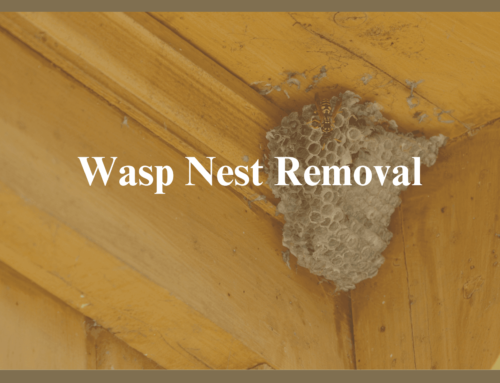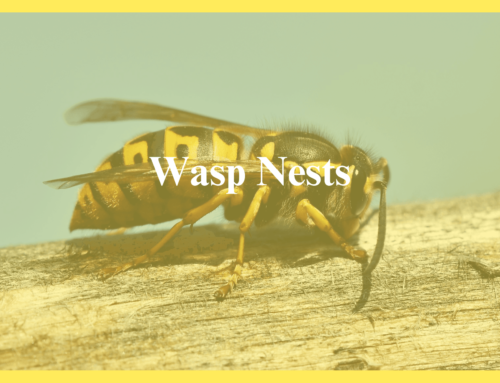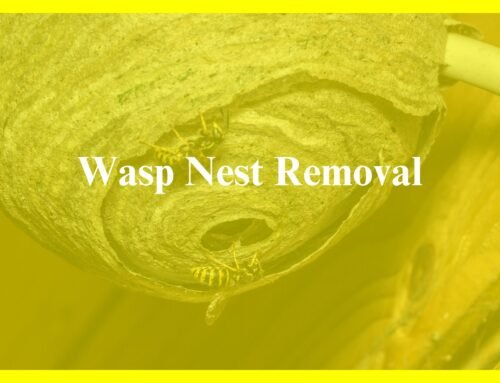Bee Swarming Season: What You Need to Know and When to Call the Experts
As the weather warms and nature begins to bloom, many people start noticing an increase in the buzz of bees around their gardens and homes. For many, the sight of a large group of bees swarming can be alarming, but it’s important to remember that bees are not out to cause harm. In fact, bee swarming is a completely natural occurrence that plays a crucial role in their reproduction process. While bee swarming can be unsettling, in most cases, the bees are simply looking for a new home.
In this blog post, we’ll dive into why bees swarm, what to do if you see a swarm, and how Eraserpest Pest Control can help you with any pest concerns, while our sister company Beesaway handles the removal of established bee colonies from properties like roofs, walls, and chimneys. We’ll also emphasize the importance of leaving swarming bees alone and the key difference between a swarm and an established colony.
Why Do Bees Swarm?
Bee swarming occurs when a colony of bees gets too large for their hive. In response, the bees divide, with the queen bee and a group of worker bees leaving the original hive to search for a new home. This process typically happens in the spring and early summer when the weather is warm and the hive is thriving. The bees are not aggressive during swarming; they are focused on finding a new location to set up a new colony.
When a bee colony swarms, the bees typically settle in a temporary location like a tree branch or a bush while scout bees search for a permanent new home. The sight of a swarm of bees can be unsettling, especially if it happens near your home or garden, but it’s important to remember that swarming bees are usually harmless. They are not looking for trouble—they are just trying to establish a new hive. They are highly unlikely to sting unless provoked.
What Should You Do If You See a Swarm of Bees?
If you come across a swarm of bees near your property, the best thing to do is to leave them alone. Swarming bees are usually just passing through on their way to finding a permanent home, and they typically don’t stick around for long. Here’s a quick rundown of how to handle the situation if you encounter a swarm:
-
Stay Calm and Keep a Safe Distance: Bees are not likely to sting unless threatened, so it’s important to avoid disturbing the swarm. Keep children and pets away from the area to avoid any potential risk.
-
Do Not Attempt to Handle the Swarm: While it may be tempting to try to handle the situation yourself, it’s important not to try and move or disturb the swarm. Bees are in a vulnerable state during this time, and disrupting them can cause them to become agitated.
-
Give Them Time to Move On: In most cases, the swarm will remain in place for just a short period—usually no more than a few hours or a day—before the scout bees find a new home. If the bees haven’t left within a few days, it may indicate that they’ve found a permanent location nearby.
-
Call the Professionals If Needed: If the bees are swarming in a location that’s unsafe or they seem to be lingering for an extended period, it’s time to contact a professional. This is where Eraserpest Pest Control can provide advice, or, if necessary, our sister company Beesaway can help if the bees have moved into your property.
When Should You Call Beesaway for Bee Colony Removal?
If bees have settled in a place like your roof, wall, chimney, or other parts of your home, they are no longer swarming—they’ve established a colony. This is when professional intervention is necessary.
While Eraserpest Pest Control focuses on providing pest control services for a variety of other pests, Beesaway is our specialist service dedicated to humane bee removal. Our team at Beesaway works to relocate established bee colonies, ensuring that the bees are not harmed during the process. We never exterminate bees because we recognize their importance in the environment.
Here’s what you need to know about our bee removal services:
1. We Relocate, Not Exterminate
At Beesaway, we are committed to protecting bees. Rather than killing the bees, we carefully remove established colonies and relocate them to a safer location. Bees play a crucial role in pollination, which supports biodiversity and the production of food crops. That’s why we are dedicated to preserving bee populations and ensuring they continue their important work in our environment.
2. Removal from Roofs, Walls, and Chimneys
Bees can sometimes find their way into small cracks or openings in your home, setting up their hive in places like roof spaces, walls, and chimneys. While they might not pose an immediate danger, the presence of a bee colony in such areas can cause structural damage over time. The honeycomb that bees create can attract pests, cause water damage, and even lead to leaks if left unchecked.
Beesaway’s team is highly skilled at accessing hard-to-reach areas to safely remove the bees and their hive. We specialize in handling delicate situations where the bees are in areas that are hard to reach, ensuring that both your property and the bees are treated with care.
3. Restoring Your Property
After we safely remove the bee colony, we ensure that any damage caused to your property is repaired. This includes sealing any cracks, holes, or gaps to prevent future infestations and restoring any areas of your roof or walls that may have been affected. Whether you’re dealing with a modern home or a historic building, we have the expertise to complete the job properly, ensuring your property is secure and bee-free.
4. Nationwide Coverage
Beesaway operates across the UK, meaning we can help you no matter where you’re located. From urban homes to rural properties, and from historic castles to modern office buildings, we are equipped to handle all types of bee removal situations.
Why Eraserpest and Beesaway Are Your Trusted Experts
While Eraserpest Pest Control is here to manage all types of pests (except for bees), Beesaway is your go-to service for handling bees—especially established colonies. We work hand-in-hand with our clients to ensure that bee relocation is done safely, efficiently, and in full compliance with environmental laws. Here’s why you should choose us:
1. Expert Knowledge of Bees and Their Behavior
Our team is well-versed in bee behavior, including the swarming process and the best ways to handle different types of bee activity. We understand that bees can be a sensitive issue for homeowners, which is why we handle every situation with the utmost care and professionalism.
2. Humane Bee Removal and Relocation
We don’t just remove bees—we relocate them. Our approach is humane and focused on protecting the bees while addressing the needs of our clients. The bees are safely transported to new, suitable locations where they can continue their important work of pollination.
3. Specialist Service for All Properties
Whether your property is a modern home or a historic building, we can safely remove bees and make any necessary repairs. We understand the challenges that older buildings present, and we have the expertise to handle these situations carefully, ensuring that no harm comes to the property or the bees.
Final Thoughts: Why It’s Best to Leave Bee Swarms Alone
If you spot a swarm of bees this season, your best course of action is to leave them alone. Swarming is a natural part of the bees’ life cycle, and the bees are typically just looking for a new home. The swarm will usually move on after a short time, and there’s no reason to intervene unless they have become established in your property.
If you do find a colony of bees has moved into your roof, walls, or chimney, give Beesaway a call. We’ll safely remove the bees, relocate them to a safe place, and ensure your property is restored to its original condition.
Bees are vital to our ecosystems, and it’s important that we all do our part to protect them. If you’re ever in doubt about how to handle a bee situation, trust the experts at Eraserpest and Beesaway to provide safe and effective solutions.
Call Us Today
If you’re concerned about a bee colony on your property or have questions about bee swarming season, don’t hesitate to get in touch. We’re here to help keep your home safe, and the bees, safe too!






